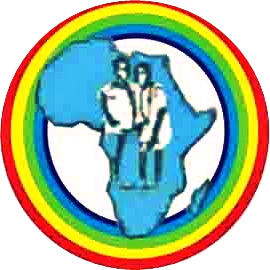14. Disability Inclusion Programs
MCSG ensures that people with disabilities are not left behind. We provide accessibility resources such as wheelchairs and assistive devices and organize community workshops to raise awareness about disability rights. In the Sissala District, our work has empowered over 50 individuals with disabilities by offering job training and advocating for inclusive policies within local government. One inspiring success story is that of Kwame, a young man with a physical disability who now runs a successful bicycle repair shop.
15. Health Ambassador Training
We have established a Health Ambassador Training Program, where community members are trained to become health advocates. These ambassadors educate their neighbors about hygiene, nutrition, and disease prevention, acting as vital conduits for health information. In Lawra, our program has trained 75 ambassadors who have conducted over 200 community health talks, improving awareness and promoting healthier lifestyles.
16. Gender Equality Workshops for Men and Boys
MCSG understands the importance of engaging men and boys in promoting gender equality. We organize workshops that challenge traditional gender roles and educate participants about the importance of supporting women’s health and education. In Adamawa State, Nigeria, our workshops have reached over 500 men and boys, leading to a shift in attitudes and greater support for women’s rights and access to healthcare.
17. Safe Spaces for Adolescent Girls
We have created Safe Spaces for girls in rural communities to meet, learn, and discuss issues affecting their lives, such as menstrual health, career aspirations, and personal safety. These safe spaces are facilitated by trained female mentors who provide guidance and support. In the Nandom District, over 300 girls have benefited from these programs, which have increased their confidence and ability to make informed decisions.
18. Advocacy for Policy Change
MCSG works closely with government officials to advocate for policies that improve healthcare access and protect the rights of women and children. We have successfully campaigned for the inclusion of mental health services in district health plans in the Upper West Region. By engaging policymakers and sharing data from our community programs, we are helping to shape a more equitable healthcare system.
19. Community-Based Malaria Prevention Efforts
Malaria remains a major health threat in many rural communities. MCSG distributes insecticide-treated mosquito nets to households and organizes community workshops on malaria prevention. We also conduct seasonal malaria awareness campaigns to coincide with peak transmission periods. In Lambussie, these efforts have significantly reduced malaria cases, with over 800 households receiving mosquito nets and education on malaria prevention.
20. Youth Sports for Health and Leadership
To promote physical health and foster leadership skills among young people, MCSG organizes sports programs that emphasize teamwork, discipline, and healthy living. In Maiduguri, our youth soccer tournaments have not only provided a positive outlet for hundreds of young participants but have also served as a platform for educating them about mental health and the dangers of substance abuse.
21. Emergency Relief for Displaced Families
In areas affected by conflict, MCSG provides emergency relief, including food, clothing, and medical care, to displaced families. In Borno State, Nigeria, we partnered with local organizations to assist over 1,000 families who had fled violence, ensuring they received necessary supplies and medical attention. This immediate support is often a lifeline for those struggling to survive in crisis situations.
22. Breast and Cervical Cancer Screenings
MCSG has launched a Women’s Health Initiative focused on breast and cervical cancer awareness and screenings. We partner with local clinics to provide free screenings and educational sessions on the early signs of cancer. In Jirapa, our initiative screened over 500 women in the past year, leading to early detection and better treatment outcomes for several participants.
23. Tailored Mental Health Interventions
Our Mental Health Program not only provides counseling services but also trains community members to become peer supporters. In collaboration with traditional healers and faith leaders, we address mental health stigma and integrate culturally appropriate practices. In Sissala, this approach has helped hundreds of individuals feel more comfortable seeking mental health support.
24. Nutrition Gardens in Schools
To combat child malnutrition, MCSG has started Nutrition Gardens at schools, where children learn to grow vegetables and understand the importance of a balanced diet. The produce from these gardens is used to prepare school meals, improving students' nutrition. In the Lawra District, this initiative has provided healthy meals for over 600 students while teaching sustainable agriculture practices.

